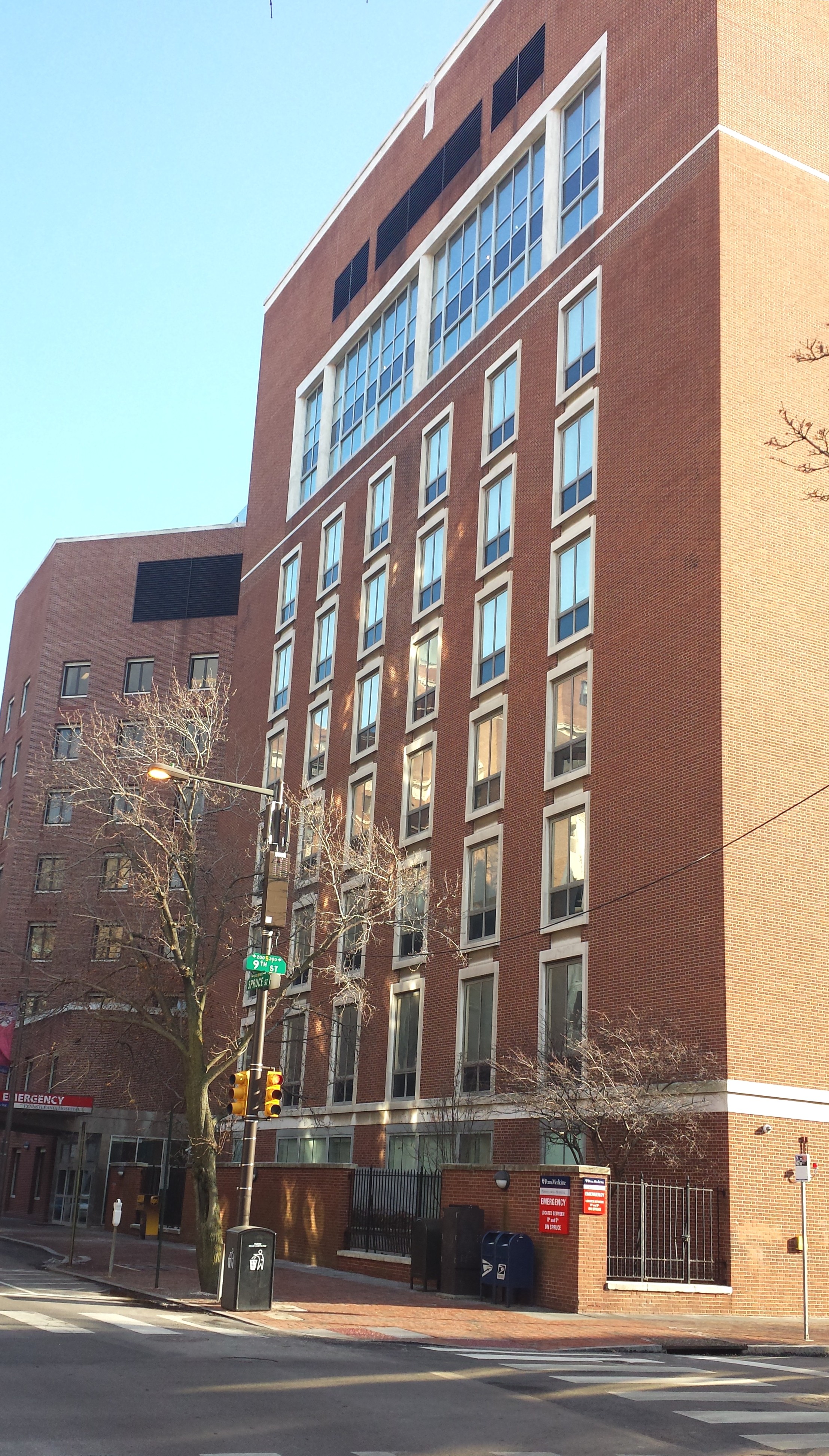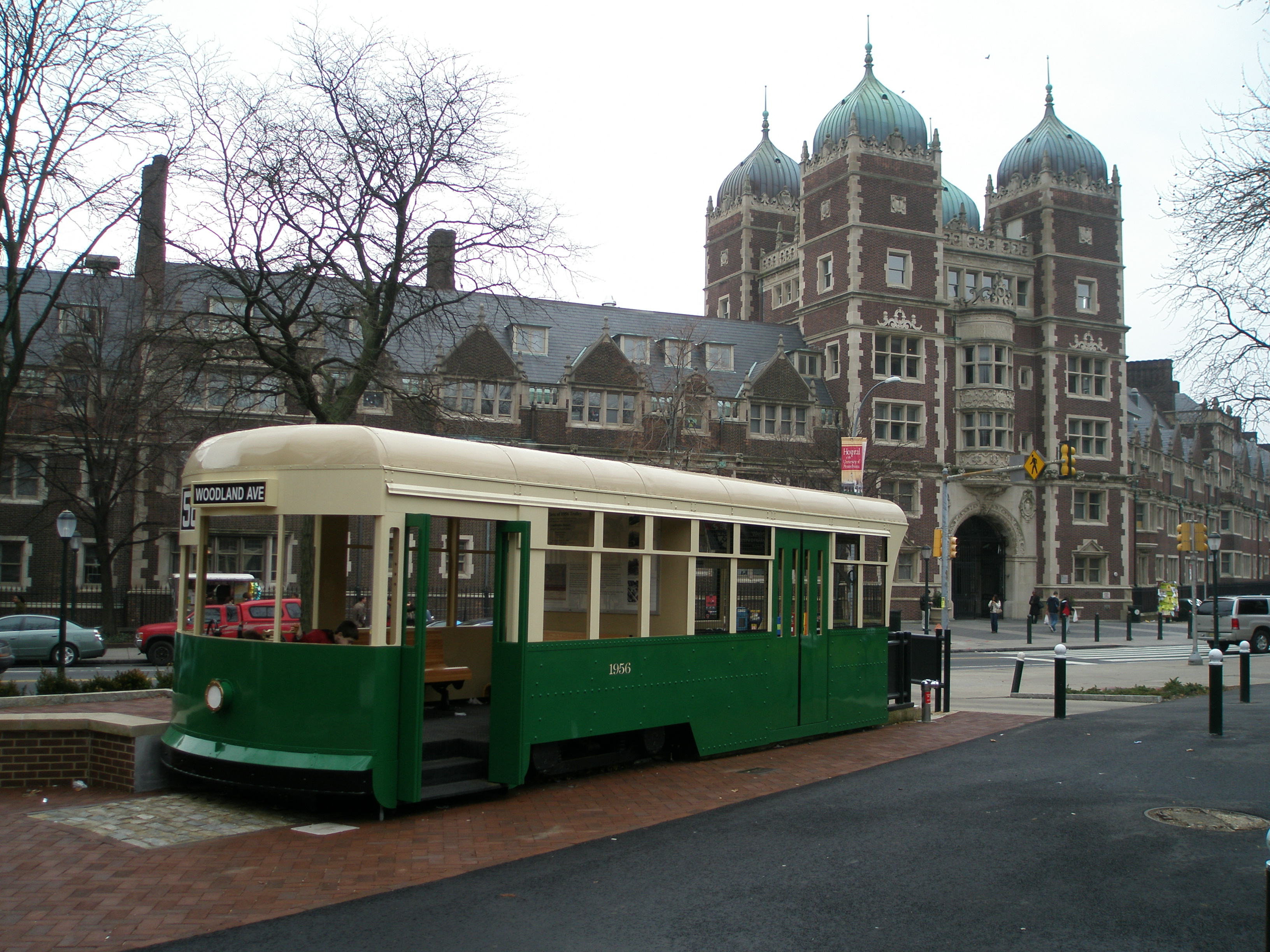|
Thomas Bond (American Physician)
Thomas Bond (May 2, 1713 – March 26, 1784) was an American physician and surgeon. In 1751 he co-founded the Pennsylvania Hospital, the first medical facility in the American colonies, with Benjamin Franklin, and also volunteered his services there as both physician and teacher. Education and professional life Thomas Bond was born in Calvert County, Maryland, the son of Richard Bond and Elizabeth Chew. After studying medicine with Dr. Alexander Hamilton in Annapolis, he traveled to Europe to complete his medical education, mainly in Paris. Dr. Bond then moved to Philadelphia where he practiced medicine for 50 years. In 1743, he helped his long-time friend Benjamin Franklin establish the American Philosophical Society. Having formed a favorable opinion of British hospitals in the course of his studies, Bond began trying to raise funds in 1750 to establish a place of care for both the sick and the mentally ill, particularly for the poor. Unable to raise the funds himself, he t ... [...More Info...] [...Related Items...] OR: [Wikipedia] [Google] [Baidu] |
Pennsylvania Hospital
Pennsylvania Hospital is a Private hospital, private, non-profit, 515-bed teaching hospital located at 800 Spruce Street (Philadelphia), Spruce Street in Center City, Philadelphia, Center City Philadelphia, The hospital was founded on May 11, 1751 by Benjamin Franklin and Thomas Bond (American physician), Thomas Bond. It was the second public hospital in the United States (after only Bellevue Hospital) and had its first surgical amphitheater. and its first medical library. It is part of the University of Pennsylvania Health System. The hospital's main building, dating to 1756, is a National Historic Landmark. History 18th century Pennsylvania Hospital was originally conceived in 1751 by Thomas Bond as an institution "for the reception and cure of the sick poor...free of charge. It was funded by "matching grant" to donations of the people of Philadelphia by a bill, which the House passed unanimously on February 7, 1750. Franklin later wrote that, "I do not remember any of my pol ... [...More Info...] [...Related Items...] OR: [Wikipedia] [Google] [Baidu] |
University Of Leyden
Leiden University (abbreviated as ''LEI''; ) is a public research university in Leiden, Netherlands. Established in 1575 by William, Prince of Orange as a Protestant institution, it holds the distinction of being the oldest university in the Netherlands of today. During the Dutch Golden Age scholars from around Europe were attracted to the Dutch Republic for its climate of intellectual tolerance. Individuals such as René Descartes, Rembrandt, Christiaan Huygens, Hugo Grotius, Benedictus Spinoza, and later Baron d'Holbach were active in Leiden and environs. The university has seven academic faculties and over fifty subject departments, housing more than forty national and international research institutes. Its historical primary campus consists of several buildings spread over Leiden, while a second campus located in The Hague houses a liberal arts college ( Leiden University College The Hague) and several of its faculties. It is a member of the Coimbra Group, the Europaeum, and ... [...More Info...] [...Related Items...] OR: [Wikipedia] [Google] [Baidu] |
List Of Mayors Of Philadelphia
The mayor of Philadelphia is the chief executive of the government of Philadelphia, Pennsylvania, as stipulated by the Charter of the City of Philadelphia. The current mayor of Philadelphia is Cherelle Parker, who is the first woman to hold the position. History 18th century The first mayor of Philadelphia was Humphrey Morrey, who was appointed to the position by William Penn, the founder of the city and the colonial-era Province of Pennsylvania, which became the state of Pennsylvania following the American Revolutionary War. Penn subsequently appointed Edward Shippen under the city charter of 1701. The Philadelphia City Council then elected Shippen to a second term. Subsequent mayors, who held office for one year, were elected by the Philadelphia City Council. The initial mayors of Philadelphia were not compensated and candidates sometimes objected strongly to being selected to the position, sometimes choosing even to pay a fine rather than serve in the position. In 1704, alde ... [...More Info...] [...Related Items...] OR: [Wikipedia] [Google] [Baidu] |
Edward Roberts (mayor)
Edward Roberts (1680 – 1741) was a colonial mayor of Philadelphia. Upon emigrating to the United States he became a prosperous merchant and landowner. He served as Mayor of Philadelphia from 1739 to 1740. Background Roberts was born in Llanvawr, Merionethshire, Wales,Welsh settlement of Pennsylvania by Browning, Charles Henry Publication date 1912 Publisher Philadelphia, W. J. Campbell Pages cited 95- 105 the third son of , a prominent preacher. Roberts emigrated to the United States as a child when his father moved to the colonies in 1684 to bring his ministry to the people there. Roberts' father was a succ ... [...More Info...] [...Related Items...] OR: [Wikipedia] [Google] [Baidu] |
Religious Society Of Friends
Quakers are people who belong to the Religious Society of Friends, a historically Protestant Christian set of denominations. Members refer to each other as Friends after in the Bible, and originally, others referred to them as Quakers because the founder of the movement, George Fox, told a judge to "quake before the authority of God". The Friends are generally united by a belief in each human's ability to be guided by the inward light to "make the witness of God" known to everyone. Quakers have traditionally professed a priesthood of all believers inspired by the First Epistle of Peter. They include those with evangelical, holiness, liberal, and traditional Quaker understandings of Christianity, as well as Nontheist Quakers. To differing extents, the Friends avoid creeds and hierarchical structures. In 2017, there were an estimated 377,557 adult Quakers, 49% of them in Africa followed by 22% in North America. Some 89% of Quakers worldwide belong to ''evangelical'' ... [...More Info...] [...Related Items...] OR: [Wikipedia] [Google] [Baidu] |
Thomas Bond Epitaph
Thomas may refer to: People * List of people with given name Thomas * Thomas (name) * Thomas (surname) * Saint Thomas (other) * Thomas Aquinas (1225–1274) Italian Dominican friar, philosopher, and Doctor of the Church * Thomas the Apostle * Thomas (bishop of the East Angles) (fl. 640s–650s), medieval Bishop of the East Angles * Thomas (Archdeacon of Barnstaple) (fl. 1203), Archdeacon of Barnstaple * Thomas, Count of Perche (1195–1217), Count of Perche * Thomas (bishop of Finland) (1248), first known Bishop of Finland * Thomas, Earl of Mar (1330–1377), 14th-century Earl, Aberdeen, Scotland Geography Places in the United States * Thomas, Idaho * Thomas, Illinois * Thomas, Oklahoma * Thomas, Oregon * Thomas, South Dakota * Thomas, Virginia * Thomas, Washington * Thomas, West Virginia * Thomas County (other) * Thomas Township (other) Elsewhere * Thomas Glacier (Greenland) Arts and entertainment * ''Thomas'' (Burton novel), a 1969 nove ... [...More Info...] [...Related Items...] OR: [Wikipedia] [Google] [Baidu] |
Deborah Read
Deborah Read Franklin ( 1708 – December 19, 1774) was the common-law wife of Benjamin Franklin, one of the Founding Fathers of the United States until her death in 1774. Early years Little is known about Read's early life. She was born around 1708, most likely in Birmingham, England (some sources state she was born in Philadelphia) to John and Sarah Read, a well respected Quaker couple. John Read was a moderately prosperous building contractor and carpenter who died in 1724. Read had three siblings: two brothers, John and James, and a sister, Frances. The Read family immigrated to British America in 1711, settling in Philadelphia. Marriages In October 1723, the about 15-year-old Read met then 17-year-old Benjamin Franklin when he walked past the Read home on Market Street one morning. Franklin had just moved to Philadelphia from Boston to find employment as a printer. In his autobiography, Franklin recalled that at the time of their meeting, he was walking while carrying "t ... [...More Info...] [...Related Items...] OR: [Wikipedia] [Google] [Baidu] |
Field Hospital
A field hospital is a temporary hospital or mobile medical unit that takes care of casualties on-site before they can be safely transported to more permanent facilities. This term was initially used in military medicine (such as the Mobile Army Surgical Hospital or MASH), but it has also been used to describe alternate care sites used in disasters and other emergency situations. A field hospital is a medical staff with a mobile medical kit and, often, a wide tent-like shelter (at times an inflatable structure in modern usage) so that it can be readily set up near the source of casualties. In an urban environment, the field hospital is often established in an easily accessible and highly visible building (such as restaurants, schools, hotels and so on). In the case of an airborne structure, the mobile medical kit is often placed in a normalized container; the container itself is then used as shelter. A field hospital is generally larger than a temporary aid station but small ... [...More Info...] [...Related Items...] OR: [Wikipedia] [Google] [Baidu] |
Continental Army
The Continental Army was the army of the United Colonies representing the Thirteen Colonies and later the United States during the American Revolutionary War. It was formed on June 14, 1775, by a resolution passed by the Second Continental Congress, meeting in Philadelphia after the war's outbreak at the Battles of Lexington and Concord on April 19, 1775. Therefore, June 14th is celebrated as the U.S. Army Birthday. The Continental Army was created to coordinate military efforts of the colonies in the war against the British Army during the American Revolutionary War, British, who sought to maintain control over the American colonies. General George Washington was appointed commander-in-chief of the Continental Army and maintained this position throughout the war. The Continental Army was supplemented by local Militia (United States), militias and volunteer troops that were either loyal to individual states or otherwise independent. Most of the Continental Army was disbanded ... [...More Info...] [...Related Items...] OR: [Wikipedia] [Google] [Baidu] |
American Revolutionary War
The American Revolutionary War (April 19, 1775 – September 3, 1783), also known as the Revolutionary War or American War of Independence, was the armed conflict that comprised the final eight years of the broader American Revolution, in which American Patriot (American Revolution), Patriot forces organized as the Continental Army and commanded by George Washington defeated the British Army during the American Revolutionary War, British Army. The conflict was fought in North America, the Caribbean, and the Atlantic Ocean. The war's outcome seemed uncertain for most of the war. However, Washington and the Continental Army's decisive victory in the Siege of Yorktown in 1781 led King George III and the Kingdom of Great Britain to negotiate an end to the war in the Treaty of Paris (1783), Treaty of Paris two years later, in 1783, in which the British monarchy acknowledged the independence of the Thirteen Colonies, leading to the establishment of the United States as an independent and ... [...More Info...] [...Related Items...] OR: [Wikipedia] [Google] [Baidu] |
University Of Pennsylvania
The University of Pennsylvania (Penn or UPenn) is a Private university, private Ivy League research university in Philadelphia, Pennsylvania, United States. One of nine colonial colleges, it was chartered in 1755 through the efforts of founder and first president Benjamin Franklin, who had advocated for an educational institution that trained leaders in academia, commerce, and public service. The university has four undergraduate schools and 12 graduate and professional schools. Schools enrolling undergraduates include the College of Arts and Sciences, the University of Pennsylvania School of Engineering and Applied Science, School of Engineering and Applied Science, the Wharton School, and the University of Pennsylvania School of Nursing, School of Nursing. Among its graduate schools are its University of Pennsylvania Law School, law school, whose first professor, James Wilson (Founding Father), James Wilson, helped write the Constitution of the United States, U.S. Cons ... [...More Info...] [...Related Items...] OR: [Wikipedia] [Google] [Baidu] |







